In the ongoing cultural war against trans people, particularly trans women, the “single-sex space debate” ranks high on the list. In a recent, separate post backed by over 100 Freedom of Information Requests, I established that the allegations concerning trans women in hospital wards are entirely unfounded.
In this article, I will seek to do the same regarding trans women in domestic abuse (DA) shelters.
No one should doubt that anyone can be subjected to domestic abuse and violence – and while such vital services are predominantly used by cisgender women, it needs to be recognised that proportionately, trans women are at a higher risk of suffering from domestic abuse than even cisgender women.
Figures published in The Independent on the 6th of January showed that in the year 21/22, domestic abuse against trans and non-binary people increased by 18%, with Valerie Wise, the national domestic abuse lead at Victim Support, saying:
“It’s important to realise that domestic abuse and sexual violence aren’t issues that only affect cisgender women. “We are seeing an increasing number of transgender and non-binary victims who are coming forward in desperate need of support.”
I can also understand that in certain circumstances, a trans woman in a refuge may be perceived or claimed to cause distress to other residents.
However, in reality, that circumstance is entirely avoidable.
In essence, all DA service providers have the ability to accept or at least help and accommodate trans women suffering domestic abuse and violence without causing distress to others.
Providers of DA services are split into four different camps.
- Those wanting to exclude trans women and say so publicly.
- Those wanting to exclude trans women but are not prepared to say so publicly.
- Those willing to accept trans women but are not prepared to say so publicly.
- Those willing to accept trans women and say so publicly.
It is well known that under the terms of the Equality Act (EA) 2010, trans women can, in specific circumstances, be legally discriminated against. The EA’s precise term is “a proportionate means to a legitimate aim”.
What is not so well known is that all those seeking shelter at refuges are “risk assessed” before entry – meaning each applicant goes through a screening process so the service provider can ascertain whether they can help – and, of course, how urgent their specific need is.
For obvious reasons, the service provider needs to understand the victim’s situation; for example, if the applicant is affected by drug addiction, the service provider will consider several factors, such as if the safe space is communal if it is staffed 24 hours etc. Refuges often won’t support women with older boys, and sadly in some cases, boys over 12 are excluded.
Sometimes the victim may benefit from support within a ‘traditional’ refuge and may be placed with other women where mutual support can be provided. These refuges can cater for groups of women, offering individual bedrooms but invariably have other shared facilities such as a lounge, children’s playroom, kitchen and bathroom(s).
On other occasions, however, an applicant could be placed in an individual flat or apartment together with any children. This is known as “Independent Living” or sometimes “Supported Living”. This does not mean the survivor does not get mental health support; they do – the advantage of this type of arrangement is that the victim maintains privacy and independence. Moreover, for a variety of reasons, a communal setting may sometimes not be appropriate for a victim.
One service provider that operates very successfully using this model is Cheshire Without Abuse (CWA). They no longer run ‘traditional’ refuges and use individual self-contained flats instead.
Many service providers have a variety of refuge spaces that they own or rent, albeit all providers (sadly) are constantly over-subscribed. In an ITV news article broadcast on the 3rd of January 2023, a domestic abuse service provider in Liverpool revealed that they were giving help to nine women in a traditional refuge, together with 17 children. During the interview with the provider, it was noted that many other women were waiting for help.
However, for the most urgent of cases, Women’s Aid operates an online database for the service providers of available refuge spaces throughout the UK. So, (for example) a victim of domestic abuse who lives in Leeds could be offered sanctuary in Hull.
What this system tells us is that, in practice, only those with complex additional needs (such as having a substance abuse issue) may struggle to access emergency refuge space.
Certainly, there may be occasions when a local domestic abuse service provider can’t help either a cisgender woman or a trans woman. But in general, all service providers should be able to help or find assistance for those being abused, although the level of help may well fall considerably below what is actually needed.
However, the sad fact is that a few service providers are transphobic and refuse to help trans women just because they are trans. Some exclusionary ‘radical feminists’ operate such domestic abuse services in areas such as London, Manchester and Hampshire and have constantly campaigned against supporting trans women.
They lobby hard for trans exclusion, and on the 7th of July 2022 they supported an event called “Single Sex ServicesSSS Single Sex Services See https://publications.parliament.uk/pa/cm201719/cmselect/cmwomeq/1470/147010.htm Members Briefing” which involved solicitors Charlotte Re******* and Lisa Gi******. The purpose of the event was to ‘assist’ domestic abuse service providers to legally justify the exclusion of trans women. Topics discussed included The Gender Recognition Act 2004, The Equality Act 2010, Protected Characteristics and Direct and Indirect Discrimination.
However, the good news is that trans people still have options.
Galop caters to the LGBT+ community with national services covering domestic abuse, hate crime and conversion therapy. While Loving Me is a domestic abuse service specifically for trans and non-binary people who live in England. Trans men and trans women often have specialised needs when dealing with personal trauma such as domestic abuse and violence, and it is good to know experts are at hand to offer support to those in the trans community.
Loving Me is based in Accrington, Lancashire, at The Emily Davison Centre – a specialist home to several charities that provide support to adults and children who have experienced or are experiencing abuse, exploitation and/or violence.
Victim Support is also able to help trans and non-binary people living in England and Wales who suffer crime of any sort, including domestic abuse – and with hate crimes against trans people increasing by 56% in the past year their services are very welcome.
TransLucent will continue to monitor the ‘Single Sex Space’ debate within the domestic abuse sector. As an organisation, we believe that gender-appropriate spaces are sometimes needed. However, allegations from trans-hostile groups and individuals that trans women are “invading” these spaces are simply not true, and nor is it true that trans woman can’t be helped in a domestic abuse emergency by ALL service providers – they can.
What causes this ‘debate’ regarding trans women accessing domestic abuse refuges, is not the fact that trans women are able to do so – but the fact that trans-hostile activists within the DA sector ensure the false debate doesn’t stop.
By using best practice methods like that of CWA, everyone can be catered for irrespective of sexuality, gender or sex – and without any claimed or perceived harm, loss of dignity… or to the detriment of any other service users.
Authored by Steph Richards.
Note: To protect the solicitors involved in the webinar, we mention we have redacted part of their surnames. We also decided against publishing the names of those in the DA sector who promote hate against trans people.




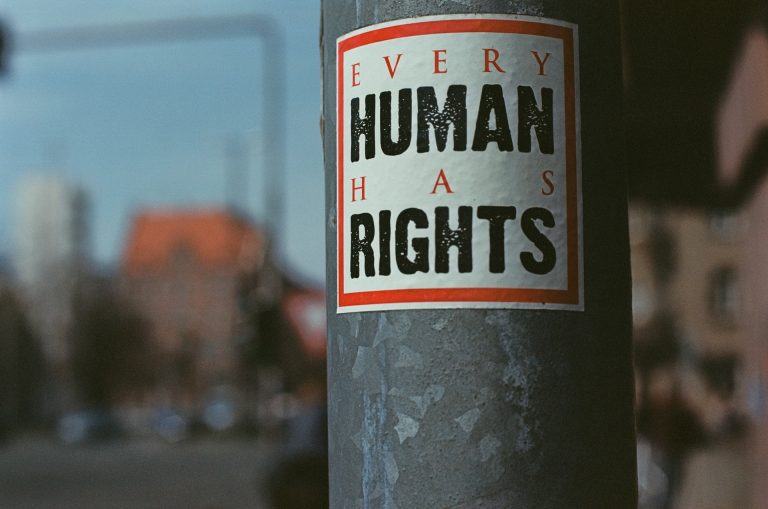

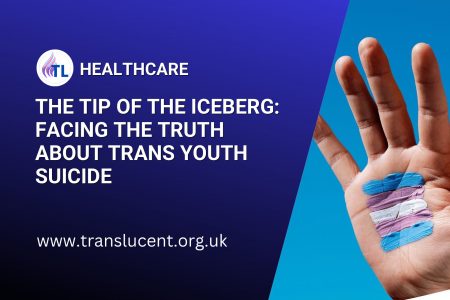
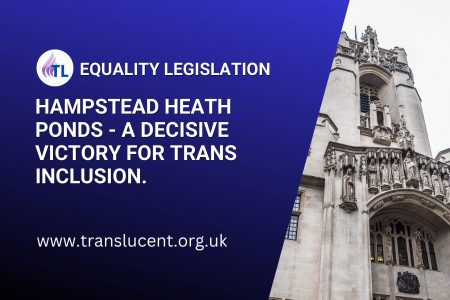
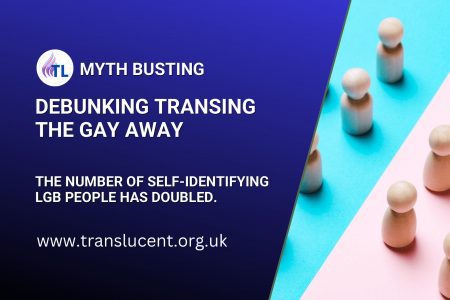
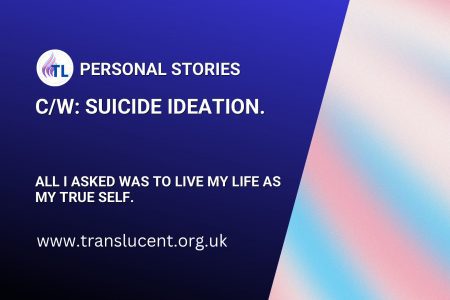
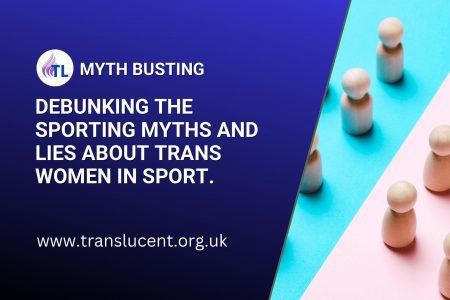
 To provide the best experiences, we use technologies like cookies to store and/or access device information. Consenting to these technologies will allow us to process data such as browsing behaviour or unique IDs on this site. Not consenting or withdrawing consent, may adversely affect certain features and functions.
To provide the best experiences, we use technologies like cookies to store and/or access device information. Consenting to these technologies will allow us to process data such as browsing behaviour or unique IDs on this site. Not consenting or withdrawing consent, may adversely affect certain features and functions.